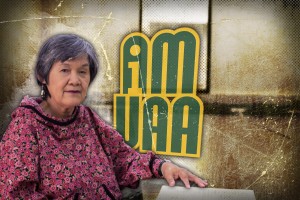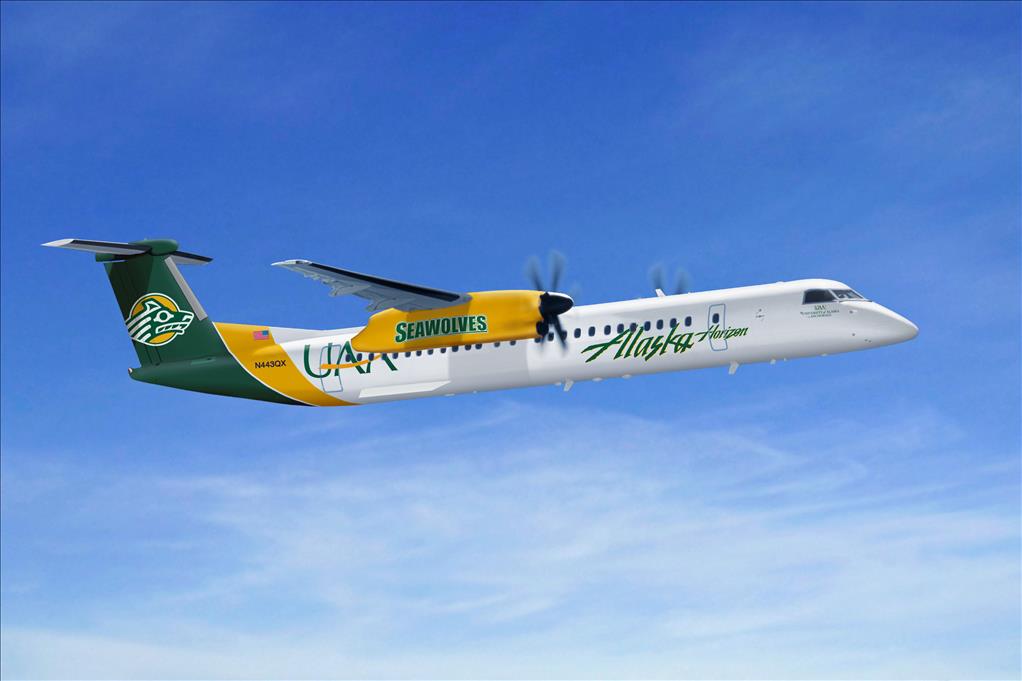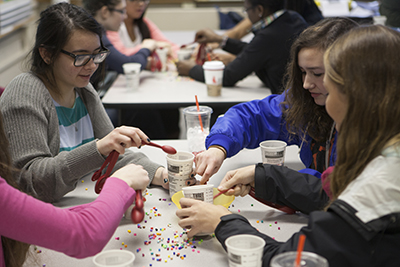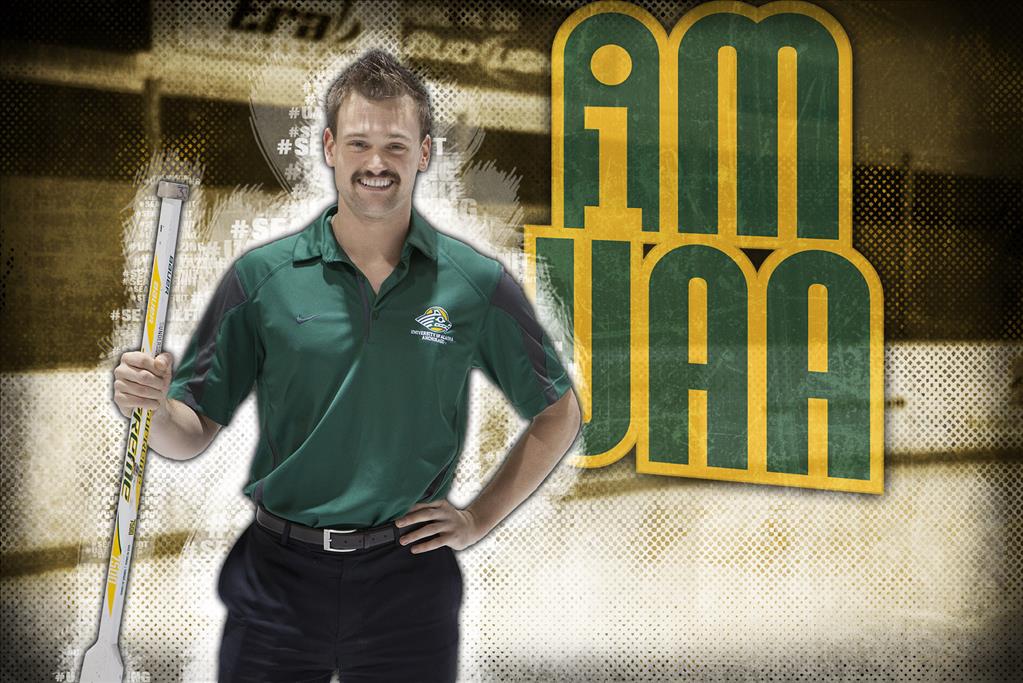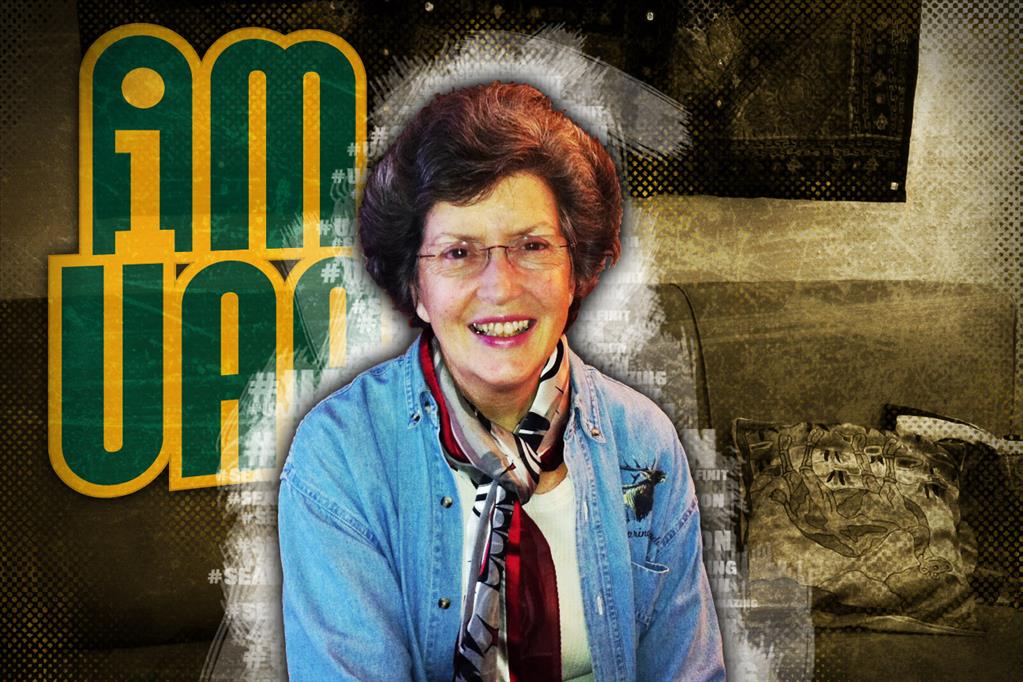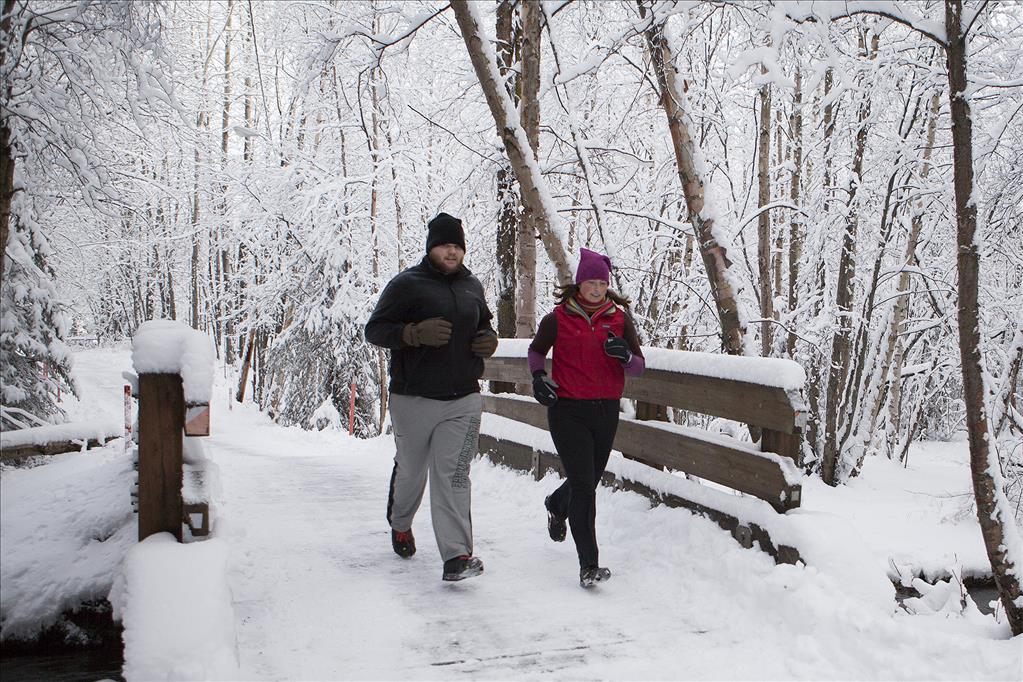Alumni Spotlight: Susan LaBelle
by Jamie Gonzales |
B.S.W. '84; M.S.W. '97
Hometown: Port Graham, Alaska
Fun Fact: Loves to travel. Her next travel plans include Europe, Canada, the U.S. and Brazil.
Susan LaBelle isn't one who enjoys the spotlight. Reserved and quiet, Susan thrives behind the scenes-and closed doors, as she says-serving and improving the state of Alaska and its rural and urban communities. "It's important to remember that it's not appropriate or fitting in my culture to boast about oneself or tell stories about how well we've done this or that."
But these days it's hard for Susan to stay under the radar. With more than 35 years of professional and volunteer service to the Alaska Native and non-Native community, she's being formally honored at the UAA Alumni Association's annual Green and Gold Gala this September.
As one of three Alumni of Distinction awardees, Susan says she's honored to be receiving this accolade from the university and its alumni.
"I'm very honored to be recognized and given this award. I was very surprised to learn I was selected as this year's recipient. There are many people who are doing great things for the community and to be acknowledged as one of them is a blessing," Susan says.
A voice for rural Alaskans
Susan has been collaborating on healthy solutions to Alaska's biggest challenges for years. From her early work at Cook Inlet Tribal Council (CITC) to her position as the interim family services director for Chugachmiut and her work as assistant clinical professor for UAA's School of Social Work, she has embraced her role as a community leader.
Over the last three decades Susan has become a voice for Alaska Native people and brought a rural Alaska perspective to the table in some of the state's most important discussions and decisions that resulted in better services to Alaskans experiencing mental illness, dementia, substance abuse, traumatic brain injury and developmental disabilities. In particular, Susan has advocated for children, helping ensure they grow up to be healthy adults.
Shaped by her past
"My compassion for people makes me strive for change," she says.
It's personal. Her family history and her heritage are part of why she works as hard as she does. An Autiiq/Filipina, Susan grew up in Port Graham, a small Kachemak Bay village on the Kenai Peninsula.
"I experienced a lot of tragedies early in my childhood. I believe that's what helps me empathize and relate to issues Alaskans face."
Susan's mother died when she was a baby, from a tuberculosis epidemic, and her father passed away in 1959. She was raised by her aunt, uncle and grandfather.
"I was fortunate to have a very loving and caring extended family who raised me to have concern for others in the community and to make sure they were taken care of. That's what I've always gone back to...that family unit," she says. "I'd learned from my grandfather, who was a wise and gentle man, to never put ourselves above anyone else."
After completing eighth grade, Susan left the comforts of her home and was sent to boarding school at the Wrangell Institute and Mt. Edgecumbe High School in Sitka. Upon graduation, Susan attended the University of Alaska Fairbanks.
New beginnings
"At an early age, my father put in my mind and my brother's that we will go to college," she says. From UAF to a Washington business school and finally to UAA, Susan's educational credentials show she was listening, though it wasn't a straight A-to-B path.
After spending time in Port Graham, Susan headed to Seattle enrolling at a business school where she met her husband, Jim. They married, had their first child and finally made it to Anchorage where an interesting job proposal caught Susan's attention.
In 1972, the Aleut League, headed by Lillie McGarvey, created a Native alcoholism program at the Alaska Native Medical Center. "They were searching for a counselor trainee," she says. She applied and, to her surprise, landed the job.
"I really fell into the job. I loved what we were doing and helping members of the community. That's finally where I felt my personal values start to align with my career."
It didn't take long for Susan to become established as a counselor, and she eventually accepted a job in CITC's Family Services Department.
She began sharing her story, inspiring and empowering youth and elders along the way, actively making a difference for Alaska's urban and rural population. But something was missing for Susan — she still wanted to complete the college education she'd begun at UAF and in Seattle, this time understanding how her personal values could help shape her academic path.
Building education for herself and Alaska
She finally felt it was time to start her journey as a social work major at UAA, beginning her coursework in 1980, completing her bachelor's degree in 1984 and continuing her work with CITC.
Several years later, while serving as director of family services, Susan was elected to the National Association of Social Work Alaska Chapter board of directors. The Friends of M.S.W. Committee was formed and she was asked to join and help lobby for a master's of social work at UAA.
"We didn't have a master's program in the state and I did not want to leave my family, home and state to pursue a master's degree Outside. It was crucial we start recruiting students to stay in Alaska and help our struggling rural communities."
She, Pudge Kleinkauf and a team of others worked tirelessly, spending long hours in meetings, networking with legislators, chancellors and the UA Board of Regents to develop a social work program that would meet Alaska's need for social work professionals.
The program launched in the fall of 1996; Susan immediately enrolled in the first cohort of students that fall, in the very program she helped create. Advocating for the M.S.W. program was one thing, but actually taking the courses was another.
"The M.S.W. program regimen was very challenging," she says. "I wanted to do the best that I could. I looked upon my professors with respect and saw some as my mentors. It was fun and exciting to be in that first class. We created a bond among the group and have remained colleagues."
The M.S.W. program has over 300 graduates today who are making a difference in communities throughout Alaska.
Passing knowledge to our youth
It should be no surprise Susan and her family have a long-standing relationship with UAA. Her husband taught a number of courses at UAA in the Alaska Natives Studies Department for eight years before retiring in 2011.
"We enjoy sharing our expertise and our knowledge to encourage and inspire youth to do great things and become pillars in the community. UAA is a great place to do that," she says.
Susan is currently working on developing a recruitment and mentoring program for Alaska Native students in social work, in addition to teaching a human diversity class this fall.
Since Susan is close to retirement, she wants to pass on her passion for service to a new generation and inspire youth to serve their communities.
"I spent time traveling last year, sharing my story and encouraging young people to consider careers in social work. It's important for them to know they too can make a difference."
Family matters
Susan knows firsthand the importance of family, both personally and professionally.
"Everything I do is family-related," she says. "It's important for me to relax and spend time enjoying my family, grand kids and great-grandchildren."
"I just love watching them grow and my husband and I love every minute of it."
Susan and her husband celebrated their 44th wedding anniversary this past June.
 "Alumni Spotlight: Susan LaBelle" is licensed under a Creative Commons Attribution-NonCommercial 4.0 International License.
"Alumni Spotlight: Susan LaBelle" is licensed under a Creative Commons Attribution-NonCommercial 4.0 International License.










